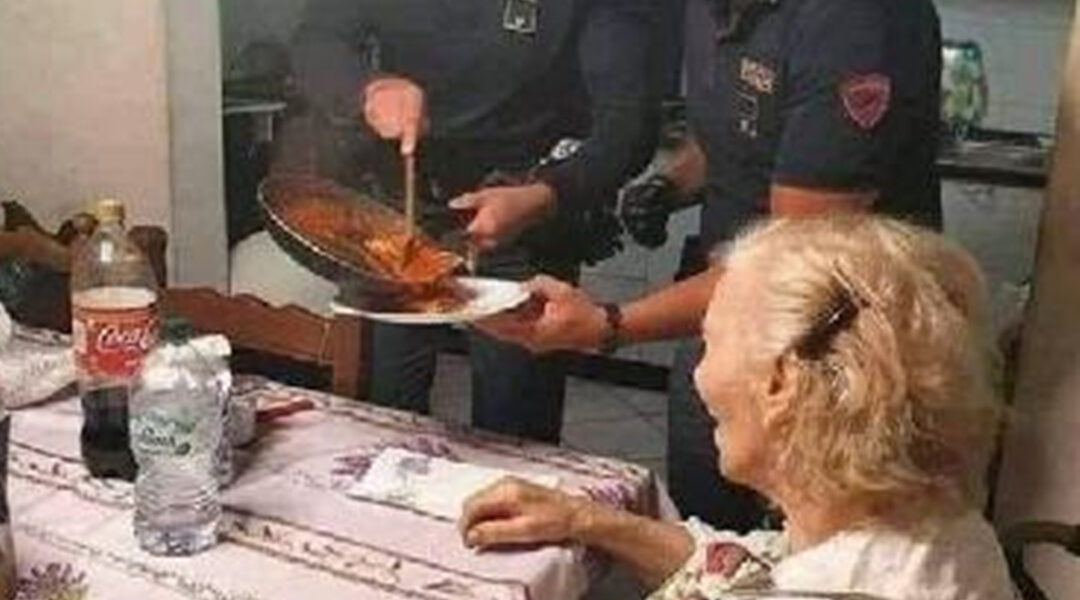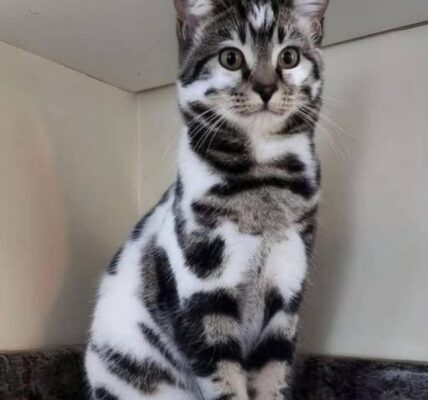
It began with the sound of crying. Neighbors in a quiet Roman apartment building, unsettled by the heartbreaking wails coming from behind closed doors, called the authorities. Soon, four police officers arrived at the small home, prepared for anything—a disturbance, a possible emergency, even a crime in progress. But what they found instead was something far more tender and deeply human.
Inside the modest apartment were Jole, 84, and her husband Michelle, 94. The couple had been married for nearly 70 years, bound together by decades of shared life, yet at that moment they were undone by something simple: loneliness.
There was no crime. No broken glass, no raised voices. Only tears. The television had been playing endless news broadcasts filled with stories of tragedy, violence, and sorrow. For Jole, who already carried the heavy silence of days without visitors, it became too much. Her sobs filled the room, carrying into the hallway until someone, worried, reached out for help.
When the officers entered, they didn’t find criminals. They found two fragile souls overwhelmed by the weight of isolation. The officers noticed other details too—unspoken but painfully clear. There were no signs of a recent meal. The kitchen was quiet, unused. The air of the home was heavy not just with grief, but with neglect born from age and solitude.
While they waited for an ambulance to arrive and check on the couple’s health, the officers made a choice that transformed the moment into something unforgettable. Instead of standing idly by, two of them moved to the small kitchen. They rummaged through what little the couple had and prepared a meal as simple as it was meaningful: spaghetti with butter and parmesan.
It wasn’t a grand feast. There was no fine wine or elaborate sauce. But it was warm, it was nourishing, and—most importantly—it was made with care. As the pasta boiled and the cheese melted into butter, the other two officers sat with Jole and Michelle, listening, laughing softly, offering something that had been absent from the home for far too long: companionship.

The elderly couple, who had spent so many days in silence, suddenly found themselves surrounded by warmth. Not just the warmth of a meal, but of humanity. For those few hours, their apartment was no longer defined by loneliness—it was filled with voices, with kindness, with a reminder that they were not forgotten.
That night, the officers didn’t solve a case, make an arrest, or recover stolen goods. What they did was something far rarer, and arguably more important: they restored dignity to two people who had begun to feel invisible. Their small act of service—a plate of spaghetti, a few kind words—was a reminder that compassion can be as critical as justice.
For Jole and Michelle, that meal may not have changed the world, but it changed their night. Perhaps it even rekindled a glimmer of hope that kindness still exists in unexpected places.

And for the officers, it was proof that wearing a badge is not only about law and order. Sometimes, it is about listening to a cry in the night and responding not with force, but with love.
Because in a city as ancient and bustling as Rome, sometimes the most extraordinary stories are not written in history books or carved into stone. Sometimes, they unfold quietly, over a pot of boiling pasta, in the kitchen of two lonely souls who needed nothing more than to feel seen, heard, and cared for—if only for one night.




